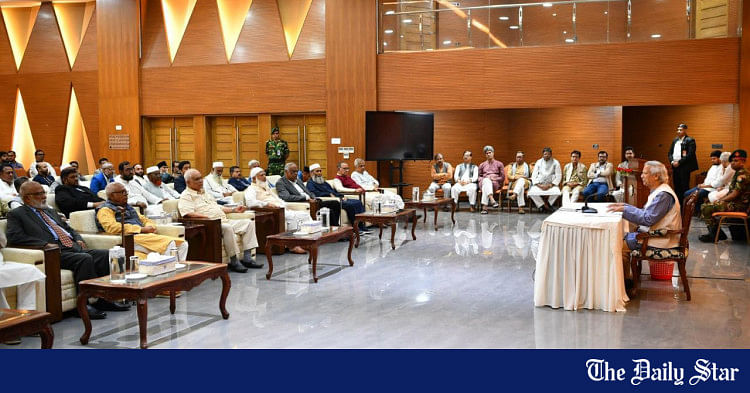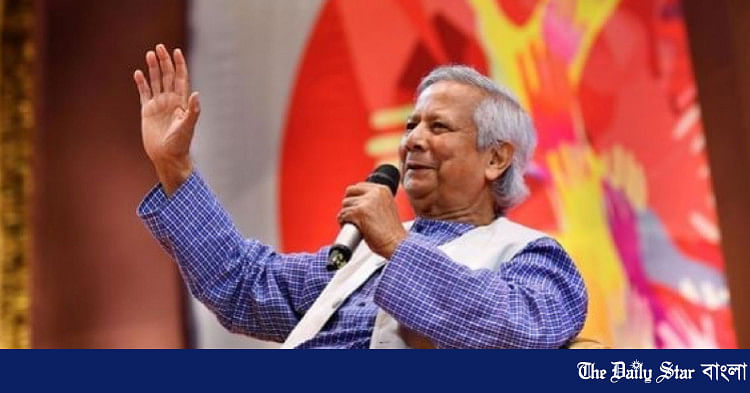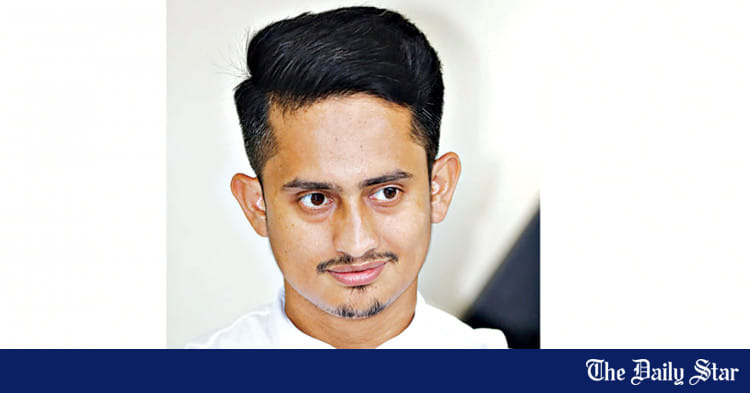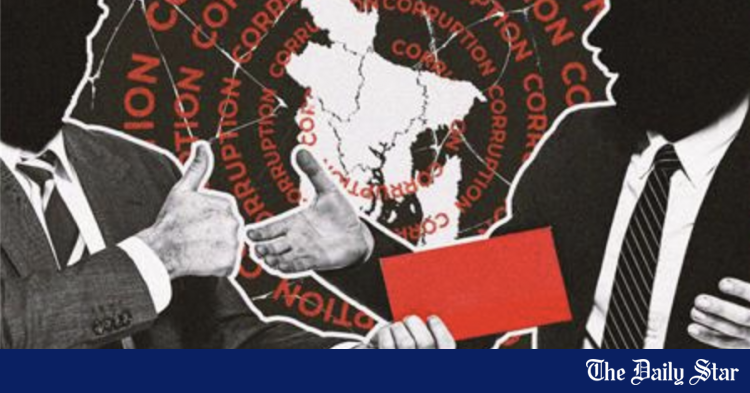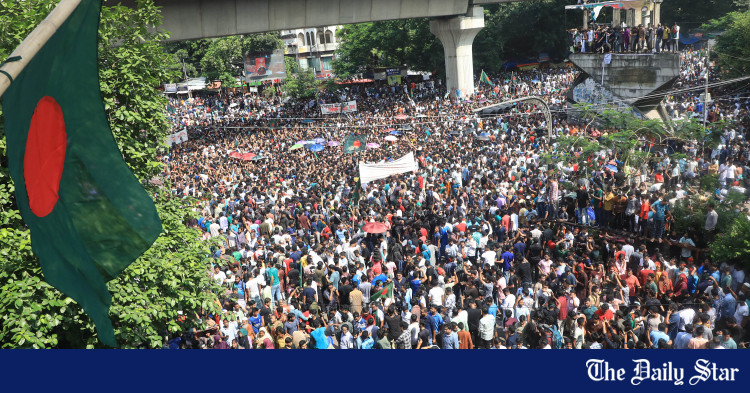- Copy to clipboard
- Thread starter
- #61

Govt should double efforts for laundered money recovery
AN INVESTIGATIVE report by a British news agency once again shows that politicians and businesspeople linked to the deposed Awami League have laundered huge wealth off Bangladesh. The report, conducted by the Observer in collaboration with Transparency International that British newspaper...
 www.newagebd.net
www.newagebd.net
Govt should double efforts for laundered money recovery
02 December, 2024, 00:00
AN INVESTIGATIVE report by a British news agency once again shows that politicians and businesspeople linked to the deposed Awami League have laundered huge wealth off Bangladesh. The report, conducted by the Observer in collaboration with Transparency International that British newspaper Guardian published on November 30, shows that prominent Bangladeshi politicians and businesspeople own top-flight properties worth an estimated £400 million in the United Kingdom. The properties were acquired through offshore companies and members of the family, with ownership concealed using complex corporate structures. The report mentions the names of a few and members of the families that own the property. Among them are Salman F Rahman, who was private industry investment adviser to the prime minister, former land minister Saifuzzaman Chowdhury, businesspeople Ahmed Akber Sobhan, Nazrul Mazumder and members of their family. Members of the Rahman family own, or hold stakes in, seven luxury blocks of flats there while the family of Ahmed Akber Sobhan of the Bashundhara Group own three properties in the United Kingdom. The family of Nazrul Mazumder, founder and chair of the Nassa Group, own top-flight Kensington property. Former land minister Saifuzzaman Chowdhury and his family own or have stakes in more than 300 UK properties worth at least £160 million.
The report is understandably not an exhaustive one as many others are likely to own and have stakes in property in the United Kingdom while the people mentioned in the report may also have more wealth there than what was reported as ownership can be easily hidden by wrapping the property-owning company inside another offshore vehicle such as an anonymous trust. The accumulation of illegal wealth by politicians and businesspeople overseas, especially in the United Kingdom, has been reported earlier too by local and international media. A white paper published on December 1 on the state of the economy during the Awami League regime says that on an average, $16 billion were illicitly syphoned off Bangladesh every year during Sheikh Hasina’s ‘corrupt autocracy’, leaving the country in a ‘state of plunder’. The massive pilfering was only possible because relevant state institutions under the Awami League regime remained virtually ineffective or complicit. A culture of impunity and lack of accountability let corrupt elements get away by amassing illegal wealth. This is assuring that the government now considers repatriating stolen funds as its priority area of intervention, but it should quickly develop a strategy to fulfil its mandate, which is to locate the laundered money, initiate transnational legal processes and set up communications with countries where the money was transferred.
Illicit capital flow is a major reason for the ongoing economic crisis, especially the dollar shortage. The interim government should, therefore, scale up its efforts to recover the laundered money and hold the launderers to justice. The government should also deliver on its anti-money laundering pledges and put in place a mechanism to stop the recurrence of capital flight.
02 December, 2024, 00:00
AN INVESTIGATIVE report by a British news agency once again shows that politicians and businesspeople linked to the deposed Awami League have laundered huge wealth off Bangladesh. The report, conducted by the Observer in collaboration with Transparency International that British newspaper Guardian published on November 30, shows that prominent Bangladeshi politicians and businesspeople own top-flight properties worth an estimated £400 million in the United Kingdom. The properties were acquired through offshore companies and members of the family, with ownership concealed using complex corporate structures. The report mentions the names of a few and members of the families that own the property. Among them are Salman F Rahman, who was private industry investment adviser to the prime minister, former land minister Saifuzzaman Chowdhury, businesspeople Ahmed Akber Sobhan, Nazrul Mazumder and members of their family. Members of the Rahman family own, or hold stakes in, seven luxury blocks of flats there while the family of Ahmed Akber Sobhan of the Bashundhara Group own three properties in the United Kingdom. The family of Nazrul Mazumder, founder and chair of the Nassa Group, own top-flight Kensington property. Former land minister Saifuzzaman Chowdhury and his family own or have stakes in more than 300 UK properties worth at least £160 million.
The report is understandably not an exhaustive one as many others are likely to own and have stakes in property in the United Kingdom while the people mentioned in the report may also have more wealth there than what was reported as ownership can be easily hidden by wrapping the property-owning company inside another offshore vehicle such as an anonymous trust. The accumulation of illegal wealth by politicians and businesspeople overseas, especially in the United Kingdom, has been reported earlier too by local and international media. A white paper published on December 1 on the state of the economy during the Awami League regime says that on an average, $16 billion were illicitly syphoned off Bangladesh every year during Sheikh Hasina’s ‘corrupt autocracy’, leaving the country in a ‘state of plunder’. The massive pilfering was only possible because relevant state institutions under the Awami League regime remained virtually ineffective or complicit. A culture of impunity and lack of accountability let corrupt elements get away by amassing illegal wealth. This is assuring that the government now considers repatriating stolen funds as its priority area of intervention, but it should quickly develop a strategy to fulfil its mandate, which is to locate the laundered money, initiate transnational legal processes and set up communications with countries where the money was transferred.
Illicit capital flow is a major reason for the ongoing economic crisis, especially the dollar shortage. The interim government should, therefore, scale up its efforts to recover the laundered money and hold the launderers to justice. The government should also deliver on its anti-money laundering pledges and put in place a mechanism to stop the recurrence of capital flight.




